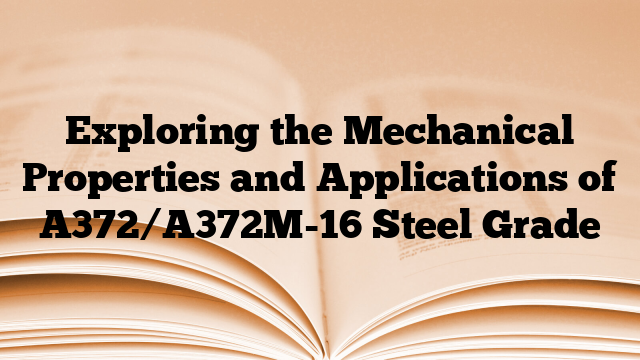ASTM A372/A372M-16 is a standard specification for carbon and alloy steel forgings for thin-walled pressure vessels. It covers various grades of steel that are suitable for use in high-pressure vessel applications. This specification outlines the chemical composition, mechanical properties, and heat treatment requirements for these steel grades.
The chemical composition of A372/A372M-16 steel grades varies depending on the specific grade. However, the common elements present in these grades include carbon, manganese, phosphorus, sulfur, silicon, copper, nickel, chromium, molybdenum, and vanadium. The exact composition will vary to meet the specific mechanical properties required for the intended application.
The mechanical properties of A372/A372M-16 steel grades are determined through various tests, including tensile and impact tests. These properties include yield strength, tensile strength, elongation, impact strength, and hardness. These mechanical properties are important to ensure the steel’s ability to withstand the high pressures and temperatures experienced in pressure vessel applications.
The applications of A372/A372M-16 steel grades primarily revolve around the construction of thin-walled pressure vessels. These steel grades are commonly used in industries such as oil and gas, petrochemical, power generation, and chemical processing. They can be found in various types of pressure vessels, including storage tanks, heat exchangers, reactors, and distillation columns.
In summary, A372/A372M-16 steel grades offer a combination of high strength, excellent ductility, and good impact resistance, making them suitable for use in high-pressure vessel applications. The mechanical properties and chemical composition of these steel grades are carefully controlled to meet the specific requirements of the intended application.

